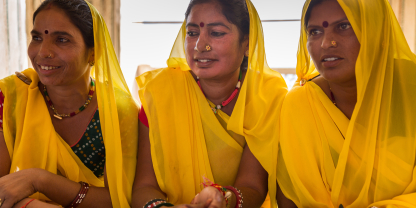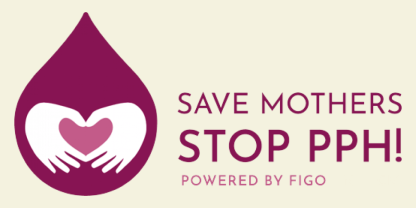New WHO Postpartum Haemorrhage Roadmap – an essential tool to reduce maternal mortality between 2023 and 2030
FIGO welcomes, endorses and commits action to the new World Health Organization (WHO) Roadmap to Combat Postpartum Haemorrhage between 2023 and 2030.
The roadmap's aim is to shape the future of postpartum haemorrhage (PPH) research and to help define normative, implementation and advocacy priorities to reduce the burden of PPH. It presents comprehensive priority agendas for improving PPH care and outcomes between 2023 and 2030.
PPH is one of the leading causes of maternal mortality and morbidity globally. It disproportionately impacts women in low- and middle-income countries, especially those that are vulnerable and marginalised including those affected by broader social determinants, malnutrition, climate change and harmful knowledge systems. The WHO roadmap is a vital part of the solutions that we must scale up and expand to put a stop to these entirely preventable tragedies. We must save mothers. We must stop PPH.
– Dr Anne Kihara, FIGO President-Elect
Background to the roadmap to combat PPH
PPH remains the leading cause of maternal mortality, accounting for over 20% of all maternal deaths reported globally. While death from PPH is largely preventable, women in low- and middle-income countries (LMICs) continue to be disproportionately affected.
In recognition of the growing need for global action to improve the quality of PPH care, the WHO worked with stakeholders to develop the roadmap, outlining global-level research, normative, implementation, and advocacy goals, activities, and milestones from 2023 to 2030, to address key PPH priorities.
The roadmap aims to align efforts and foster cooperation among all partners working in the PPH space to deliver PPH agendas, by pursuing the required technical, investment, and political objectives that will deliver on the core priorities of ongoing global initiatives for maternal and newborn health.
High impact life-saving interventions are known to prevent PPH; however, these need to be implemented promptly if PPH management is to be successful. In low- and middle-income countries (LMICs), unresponsive health systems leading to inadequate and sub-optimal quality services often delay diagnosis and management of PPH.
It is exciting to see that this roadmap outlines an innovative, solution-driven, and customised strategic framework that focuses on PPH high-burden country maternal health goals and priorities, and points investments into critical areas of health systems, with special emphasis on LMICs. The FIGO Childbirth and PPH Committee is committed to partnerships and collaborations on PPH action.
– Dr Jolly Beyeza, Vice-Chair, FIGO Childbirth and PPH Committee
FIGO’s commitment to implementing the new WHO roadmap
FIGO is committed to supporting the success of the WHO roadmap between 2023 and 2030, including by taking the following actions:
- Enhancing collaboration with other key international bodies to develop consolidated PPH global guidelines and address the gaps and inconsistencies in guidance issued to end-users.
- Working jointly with partners to define the contours of a global measurement platform for monitoring changes in practice performance, health outcomes and inequities.
- Supporting a global push for the expansion of the legislation and regulation governing midwifery and other cadres such as nurses.
- Working to strengthen pre- and in-service training of health care workers as part of continuous professional development, by developing and maintaining a full suite of tools to support enhanced quality of care, leveraging in-person training and digital tools as required.
- Supporting national stakeholders in developing or revising existing national guidelines or protocols and optimising their implementation to ensure the roadmap has an impact on maternal health at country level.
Through our Accelerating Measurable Progress and Leveraging Investments for Postpartum Haemorrhage Impact (AMPLI-PPHI) project, FIGO is working as part of a consortium, led by JHPIEGO and in partnership with PATH, to directly support Ministries of Health to ensure that the right PPH drugs are available at the right time, in the right place, for the right indication and for the right patient across health systems.
AMPLI-PPHI will generate evidence on the feasibility, acceptability and cost-effectiveness of newly recommended PPH medicines across varying health settings in the Democratic Republic of the Congo, Guinea, India, and Kenya. It will create an enabling environment for the treatments to go to scale, and prepare the market for sustained availability of quality-assured medications. AMPLI-PPHI aims to dramatically reduce maternal mortality and morbidity from PPH.


